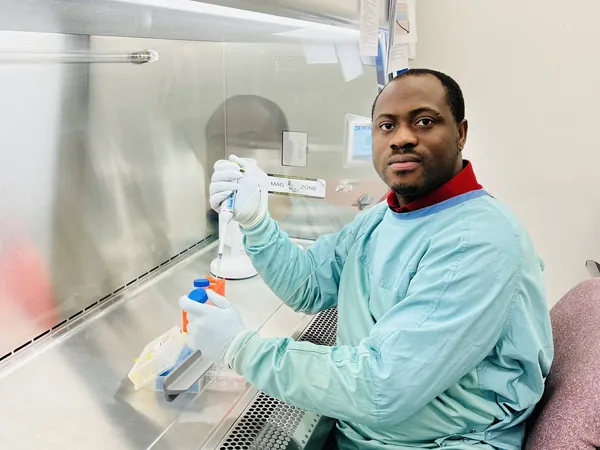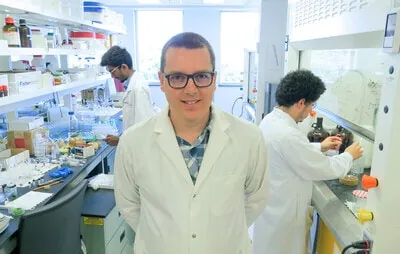
Why Inclusive Language in Dermatology is a Game-Changer for LGBTQ+ Health
2025-06-04
Author: Amelia
Unlocking Better Health Outcomes for LGBTQ+ Patients
In a groundbreaking study highlighted in JAMA Dermatology, researchers found that using LGBTQ+-friendly language in dermatology can drastically enhance patient care. This approach not only leads to more accurate data but also strengthens the vital bond between patients and clinicians, dismantling significant health barriers that LGBTQ+ individuals often face.
The Urgent Need for Change in Healthcare
Members of the LGBTQ+ community frequently encounter obstacles when seeking medical care, including discrimination, delayed diagnoses, and outright denial of treatment. These barriers are not just inconveniences; they contribute to higher rates of mental health issues like depression, anxiety, and even homelessness.
Acne Treatment in Transgender Patients: A Unique Challenge
Particularly in dermatology, the impact of gender-affirming testosterone therapy is profound. Transgender individuals assigned female at birth are more susceptible to acne due to this therapy, which can have significant social and quality of life implications. Dermatologists must prioritize understanding each patient's transition goals when prescribing acne treatments, thereby ensuring better mental health and well-being outcomes.
The Research Breakdown: Analyzing Patient-Reported Outcome Measures (PROMs)
A thorough analysis revealed that many existing acne-related patient-reported outcome measures (PROMs) still rely on outdated, non-inclusive language. Among the 22 PROMs assessed, 4 of the 9 acne-specific measures failed to embrace LGBTQ+ inclusivity, often using heteronormative language that alienates many patients.
Why Representation Matters
Inclusive terminology is essential for gathering precise data that caters to the needs of all patients. These inclusions are not just necessary for clinical trials; they foster trust and engagement between patients and healthcare providers.
A Call to Action in Healthcare
With recent federal moves rolling back diversity initiatives in clinical trials, the call for LGBTQ+-inclusive language in healthcare is more urgent than ever. Experts are worried that these actions could hinder progress not only in patient care but also in advancing precision medicine.
Conclusion: An Inclusive Future in Dermatology
The study highlights a vital need for updated clinical language that reflects today’s diverse patient population. As researchers note, it’s crucial to recognize obsolete terminology and validate new, inclusive standards that reflect the real needs of all patients. Only then can we hope to break down barriers and pave the way for comprehensive care that acknowledges every individual's unique experience.









 Brasil (PT)
Brasil (PT)
 Canada (EN)
Canada (EN)
 Chile (ES)
Chile (ES)
 Česko (CS)
Česko (CS)
 대한민국 (KO)
대한민국 (KO)
 España (ES)
España (ES)
 France (FR)
France (FR)
 Hong Kong (EN)
Hong Kong (EN)
 Italia (IT)
Italia (IT)
 日本 (JA)
日本 (JA)
 Magyarország (HU)
Magyarország (HU)
 Norge (NO)
Norge (NO)
 Polska (PL)
Polska (PL)
 Schweiz (DE)
Schweiz (DE)
 Singapore (EN)
Singapore (EN)
 Sverige (SV)
Sverige (SV)
 Suomi (FI)
Suomi (FI)
 Türkiye (TR)
Türkiye (TR)
 الإمارات العربية المتحدة (AR)
الإمارات العربية المتحدة (AR)